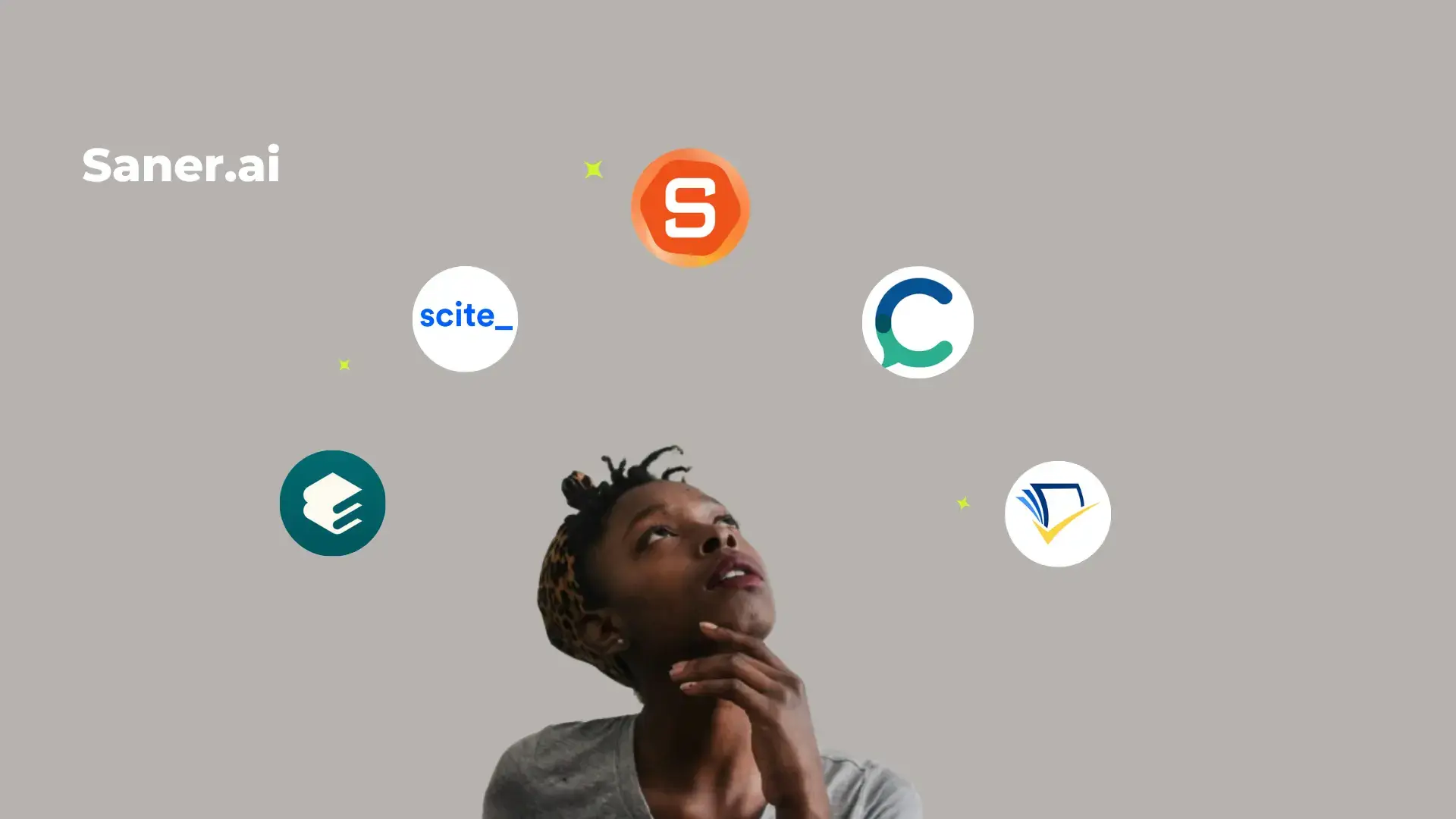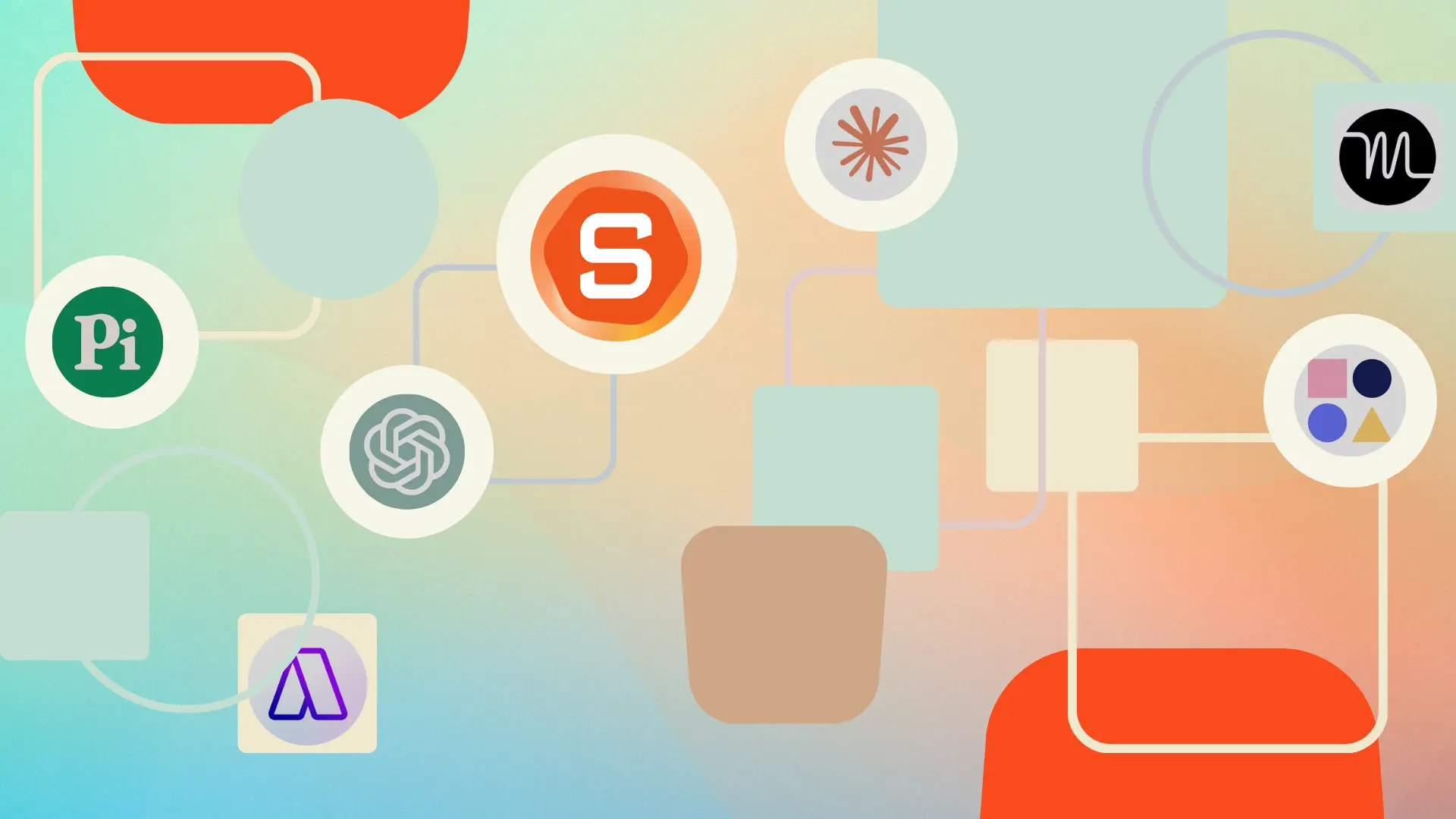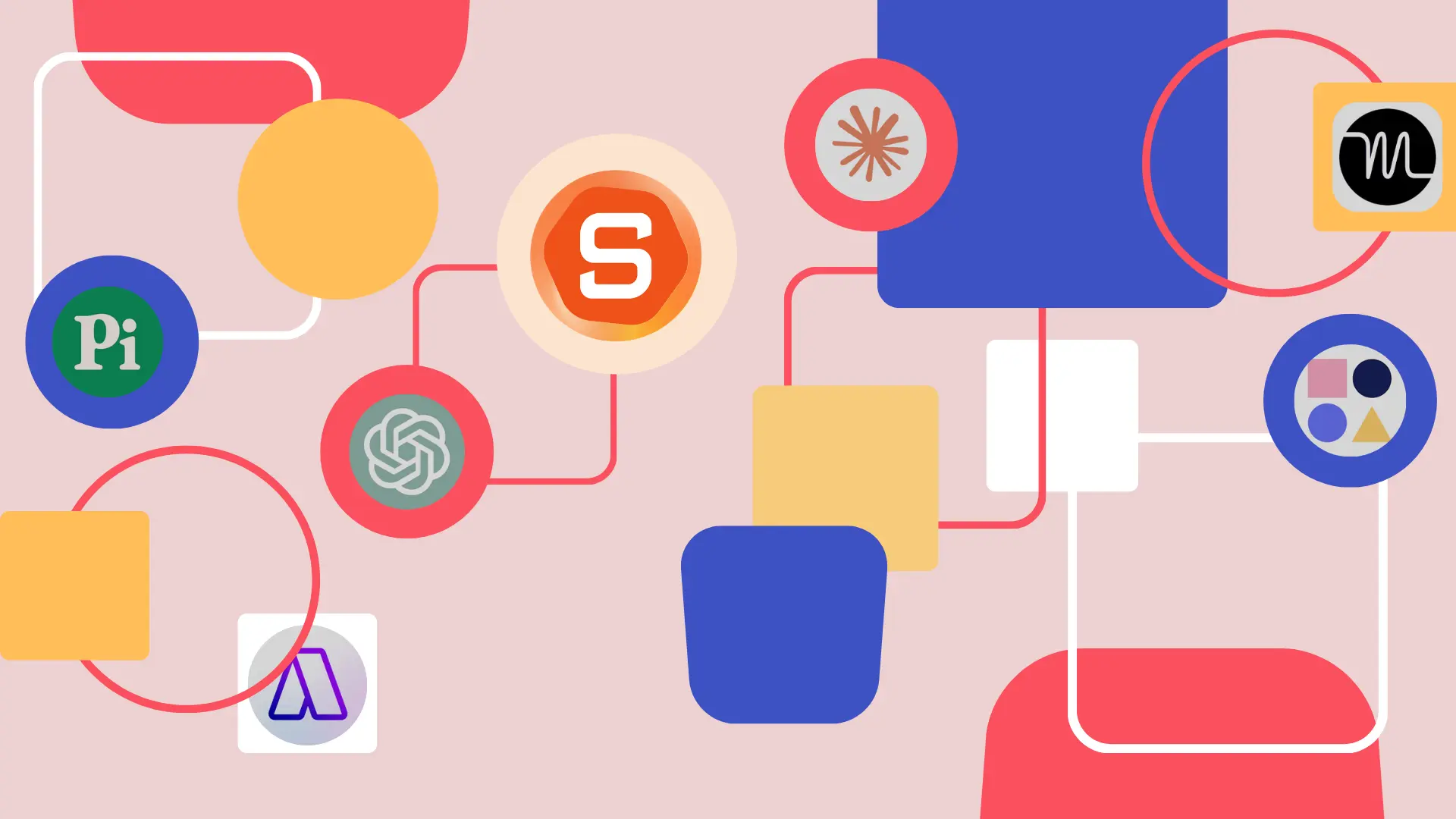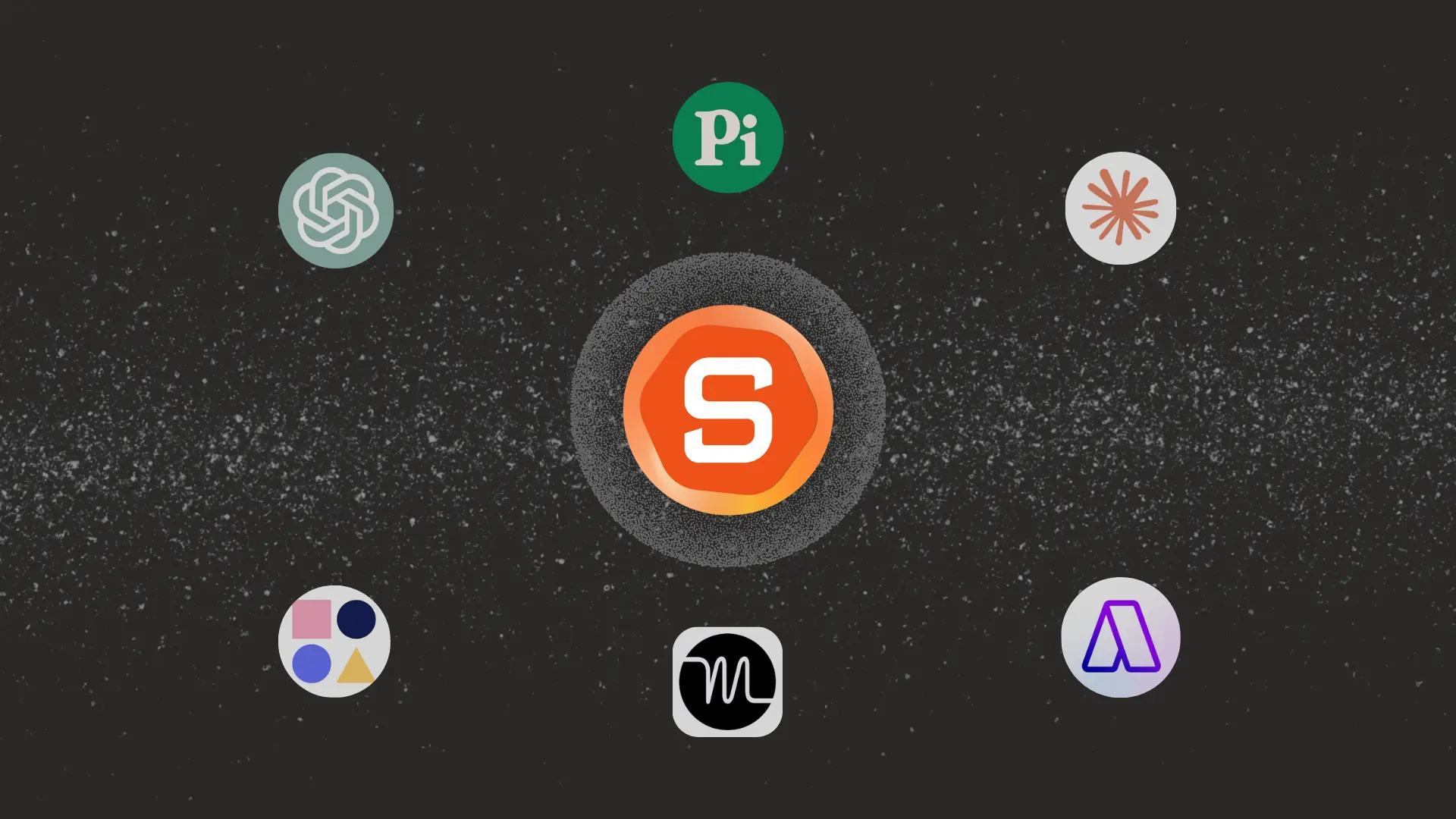10 Best AI tools for research
Everyone’s talking about AI tools for research.
But guess what? They’re not all created equal.
Sure, AI has become the shiny new assistant in research, but here’s the truth: not all tools fit every researcher’s needs. If you’re like me—juggling papers, analyzing data, and hunting for that next great insight—you need something that works with you, not just for you.
So, let’s break it down.
Whether you’re looking for something smarter, more intuitive, or just a fresh approach to managing research—I’ve got you covered. Before we dive into the specifics, let’s take a step back and look at the bigger picture. Why are AI tools so valuable in academic research?
Why AI Matters in Research
In academic circles, time is precious. The ability to quickly gather, analyze, and synthesize information can make or break a research project. But more than that, AI tools allow you to focus on what truly matters: asking the right questions, finding new insights, and contributing original ideas to your field.
What AI offers is the ability to handle some of the heavy lifting, so you’re not bogged down by repetitive tasks like formatting citations or endlessly searching for relevant papers. It’s about giving you the time and space to focus on the human side of research—the creativity, the curiosity, and the critical thinking.
10 Top AI Tools for Research
1. Scite.ai
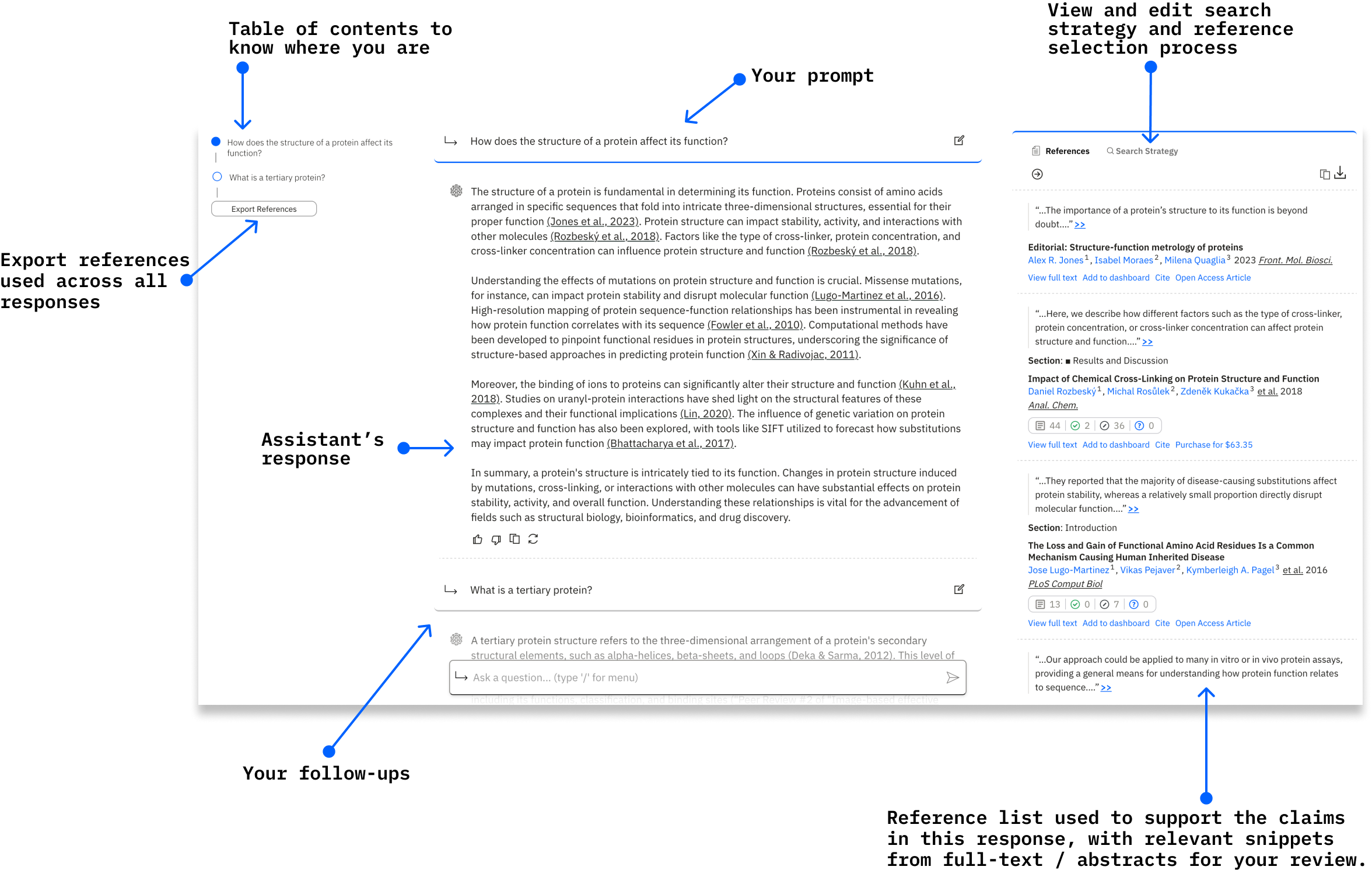
Scite is an AI-powered research tool that uses Smart Citations to provide context and classification for how research papers are cited, allowing researchers to assess the reliability and relevance of scholarly articles quickly.
Pros
- Saves time on literature reviews
- Provides clear citation context, helps understand scholarly impact, suitable for various academic disciplines..
Cons
- May miss nuanced or conflicting viewpoints
- Some features may not be fully utilized without a paid plan.
Price
- $20/month for individual plan with a 7-day free trial.
Suitable for:
- Best for researchers, students, and academics needing to validate citations and explore research literature efficiently.
How to start:
- Create an account on Scite’s website, explore the features available, use the AI assistant to ask research questions, and familiarize yourself with the Smart Citations functionality.

Research Rabbit helps in conducting literature reviews by utilizing AI to find and map relevant papers based on seed publications, offering visualization tools for better exploration.
Pros
- Comprehensive research tools
- User-friendly interface
- Real-time updates
- Community engagement.
Cons
- Navigation issues
- Reliability problems
Pricing
- Free
Suitable for:
- Ideal for students, academics, and professionals engaged in research requiring literature discovery.
How to start:
- Users need to create an account, follow the prompts to create collections and add seed papers for effective utilization.
3. Julius
Julius AI is an advanced tool designed for data analysis and visualization, allowing users to analyze their data using natural language prompts and generate visual outputs like charts and graphs.
Pros
- Intuitive interface
- Time-saving automation generates insightful visualizations
- Supports complex data analysis.
Cons
- High cost
- Dependence on data quality
- Limited features for advanced tasks.
Pricing
- Starts at $20/month
Suitable for:
- Best suited for researchers, data analysts, and professionals handling complex datasets.
How to start:
- Create an account, then upload your dataset to start analyzing it using chat prompts.
4. Consensus

Consensus is an AI-powered search engine designed to simplify the process of analyzing and interpreting large datasets. It provides evidence-based answers by pulling information from peer-reviewed papers, with an intuitive search for users to ask natural language questions.
Pros
- Real-time analytics
- Clear and actionable insights, customizable plans
- User-friendly interface
- Extensive coverage of over 200 million research papers.
Cons
- Limited coverage of research topics
- Potential delays in reflecting the latest research
- Possible learning curve for new users.
Price
- Free, $11.99/month for premium plan.
Suitable for:
- Researchers, students, analysts, and decision-makers looking for efficient literature reviews and evidence-based answers.
How to start:
- Simply type your question into the Consensus interface to start receiving evidence-based answers and insights from research papers.
5. Semantic Scholar
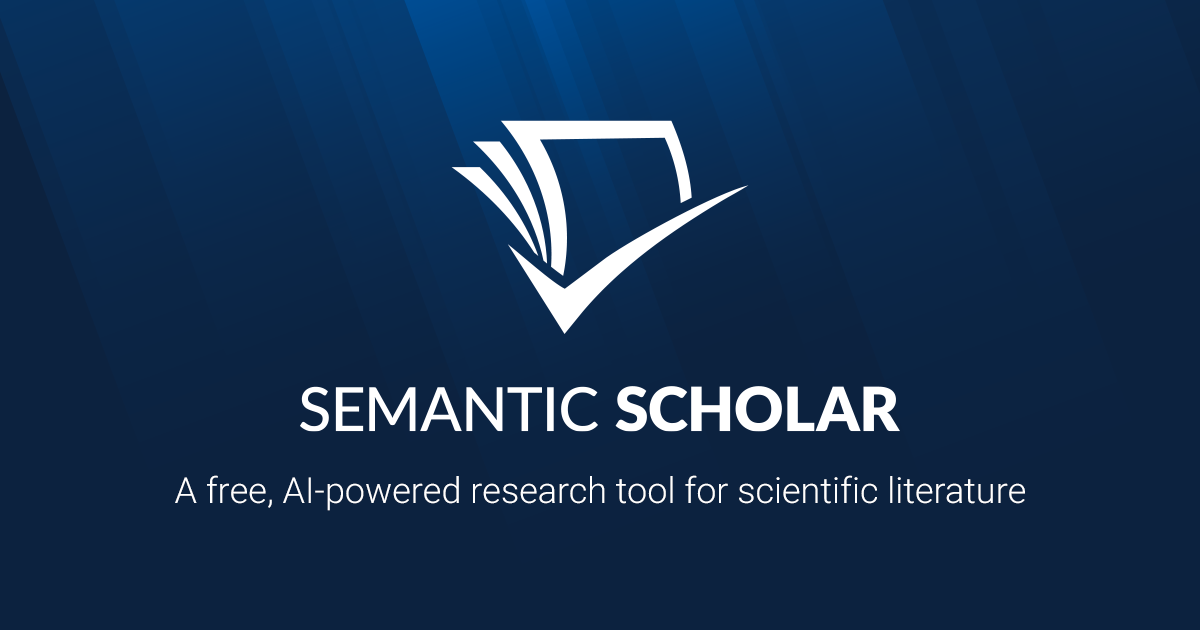
Semantic Scholar is an AI-powered research tool that uses natural language processing and machine learning to help users discover and navigate scientific literature efficiently. It provides features like TLDR (Too Long; Didn’t Read) summaries, citation analysis, and augmented reading through Semantic Reader.
Pros
- Free access
- Extensive database of over 200 million papers
- AI-generated TLDR summaries, augmented reading features
- API access for developers.
Cons
- May not cover all research areas equally
- AI-generated summaries might lack depth for some users.
Pricing
- Free
Suitable for:
- Researchers, students, librarians, and anyone needing quick access to scientific literature.
How to start:
- Visit the Semantic Scholar website at semanticscholar.org, where you can begin searching for papers immediately without needing to register.
- For additional features such as saving papers or creating alerts, users are encouraged to create a free account.
6. ChatGPT
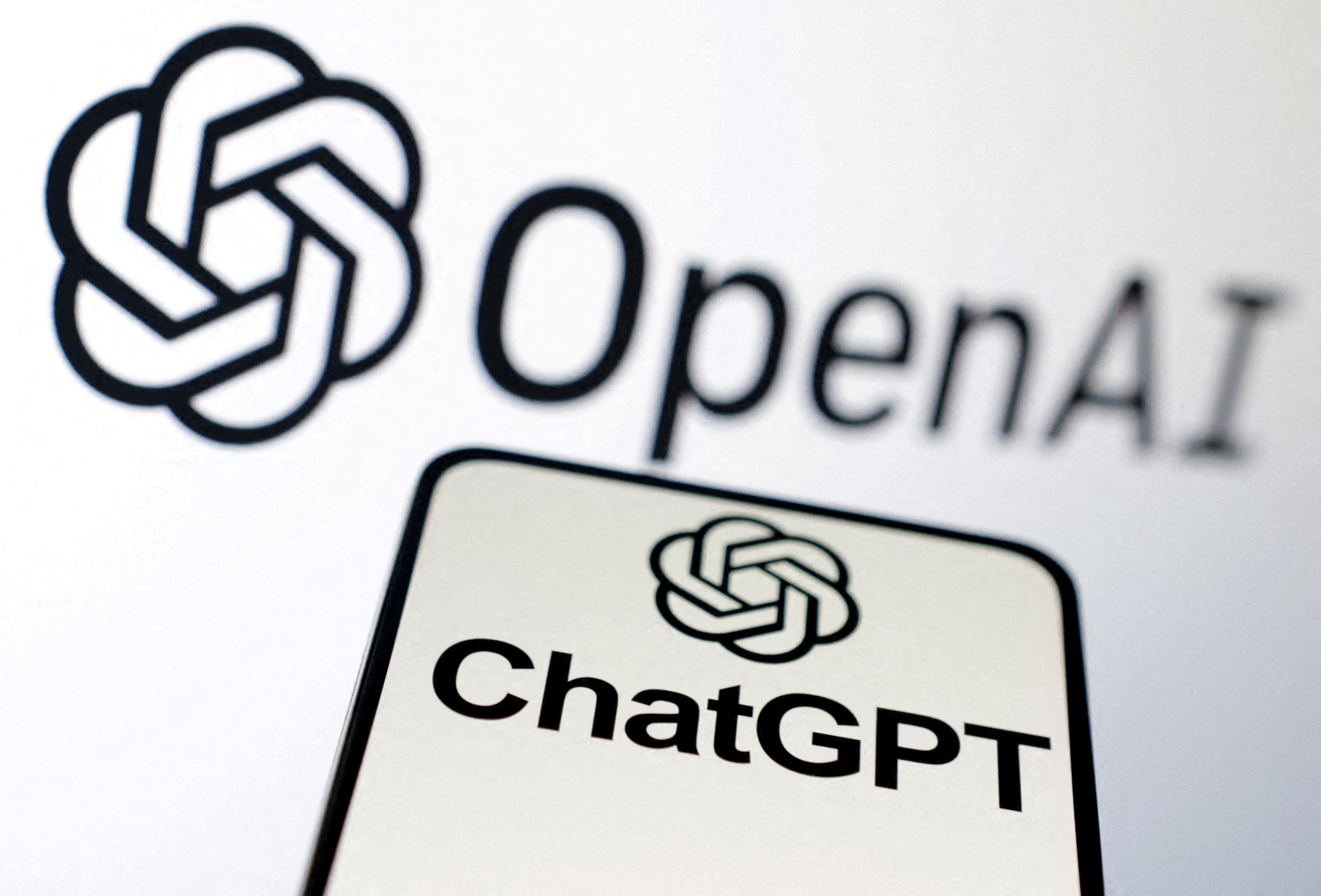
ChatGPT is an advanced AI language model that generates human-like responses, understands context well, and can assist in various applications including education, content creation, and problem-solving.
Pros
- Natural language processing fast and efficient
- Versatile applications
Cons
- Risk of generating incorrect or biased information
- Potential for plagiarism
- Dependence on quality of prompts.
Price
- Free, $20/month for Plus, $25/user/month for Team, Enterprise pricing varies (Contact sales).
Suitable for:
- Best suited for educators, marketers, researchers, and anyone needing conversational AI for tasks like content generation, customer service, and brainstorming.
How to start:
- Create an OpenAI account, access the ChatGPT interface at chat.openai.com, and start interacting by typing prompts into the input box.
7. Elicit

Elicit is an AI research assistant designed to streamline the research process by finding relevant academic papers, summarizing research findings, and extracting data from studies.
Pros
- Saves time, automates literature reviews
- Summarizes papers, extracts key data
- Easy to use, effective for empirical research.
Cons
- Requires verification of AI-generated information
- Less effective for non-empirical questions
- May not provide citations for found papers.
Price
- Free, Plus plan at $12/month for the Plus package or $49/month with the Pro package.
Suitable for:
- Best suited for academic researchers, biomedicine, machine learning professionals, and healthcare researchers.
How to start:
- To start, create an account at elicit.org, then set up research notebooks to organize your findings and begin exploring papers.
8. Paperguide
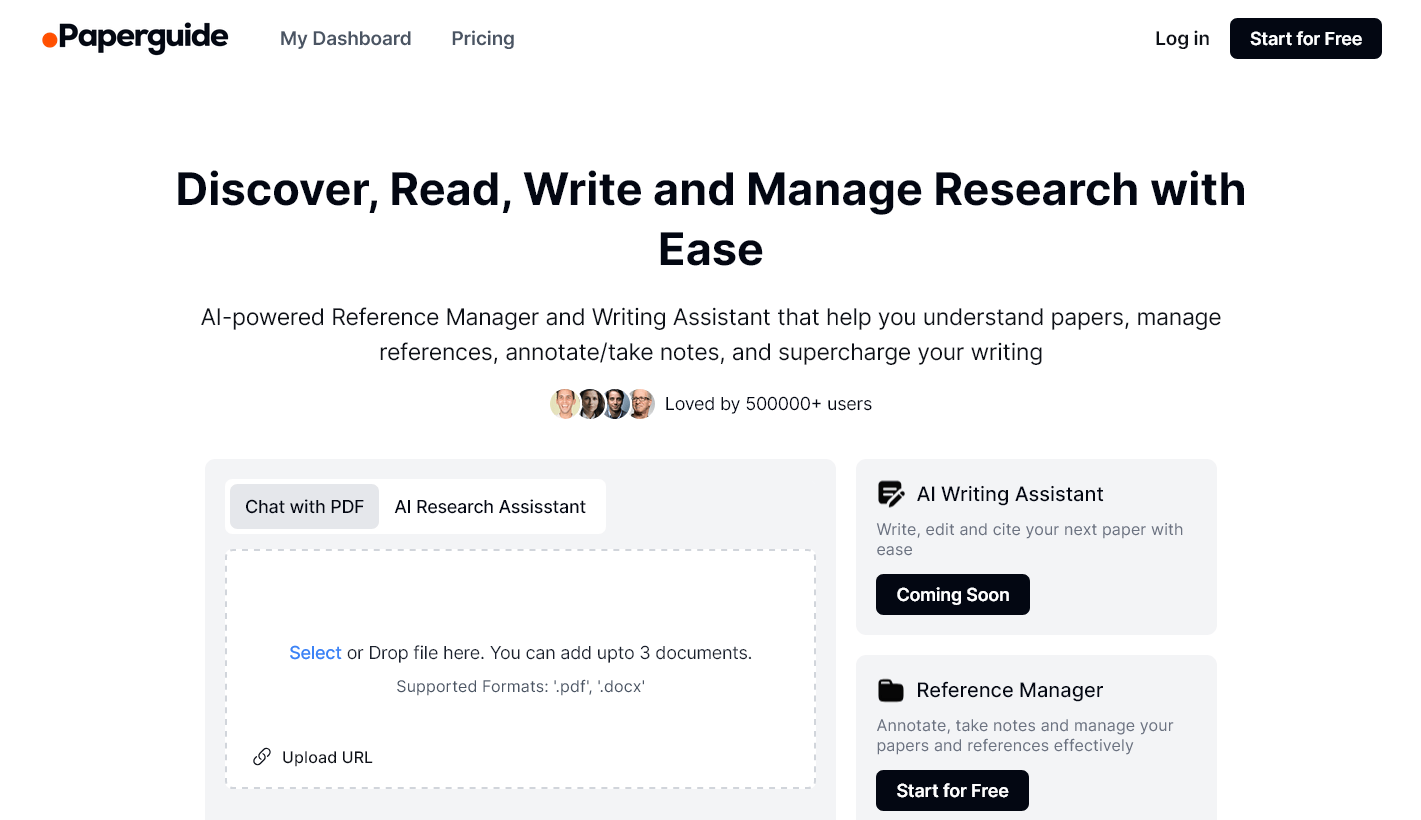
Paperguide is an AI-powered research platform that combines a research assistant, reference manager, and writing assistant to streamline the academic workflow.
Pros
- Time-saving research processes
- Efficient reference management
- AI-generated summaries
- Integrated citation management.
Cons
- Potential limitations in AI capabilities, accuracy concerns, possible quality issues in AI-generated content.
Price
- Free, Starts at $12/month for premium features.
Suitable for:
- Best suited for students, researchers, and academic professionals looking to streamline their research workflow.
How to start:
- Sign up on the Paperguide website to access free features and subscription options to utilize the full capabilities of the tool.
9. Scopus

Scopus AI is an AI-driven research tool that utilizes the Scopus peer-reviewed research repository to generate summaries and insights from complex academic content, helping users navigate unfamiliar materials efficiently.
Pros
- Increases research productivity
- Provides concise and trustworthy summaries
- Facilitates deeper exploration of academic topics
Cons
- May struggle with highly specific queries
- Not a complete replacement for traditional search methods
- Potential limitations in natural language interpretability.
Price
- N/A
Suitable for:
- Best suited for researchers conducting literature reviews, academics needing quick literature insights, and those exploring new research areas.
How to start:
- Begin by going to the Scopus homepage, selecting the ‘Scopus AI’ tab, and entering your inquiry in the provided field, using natural language
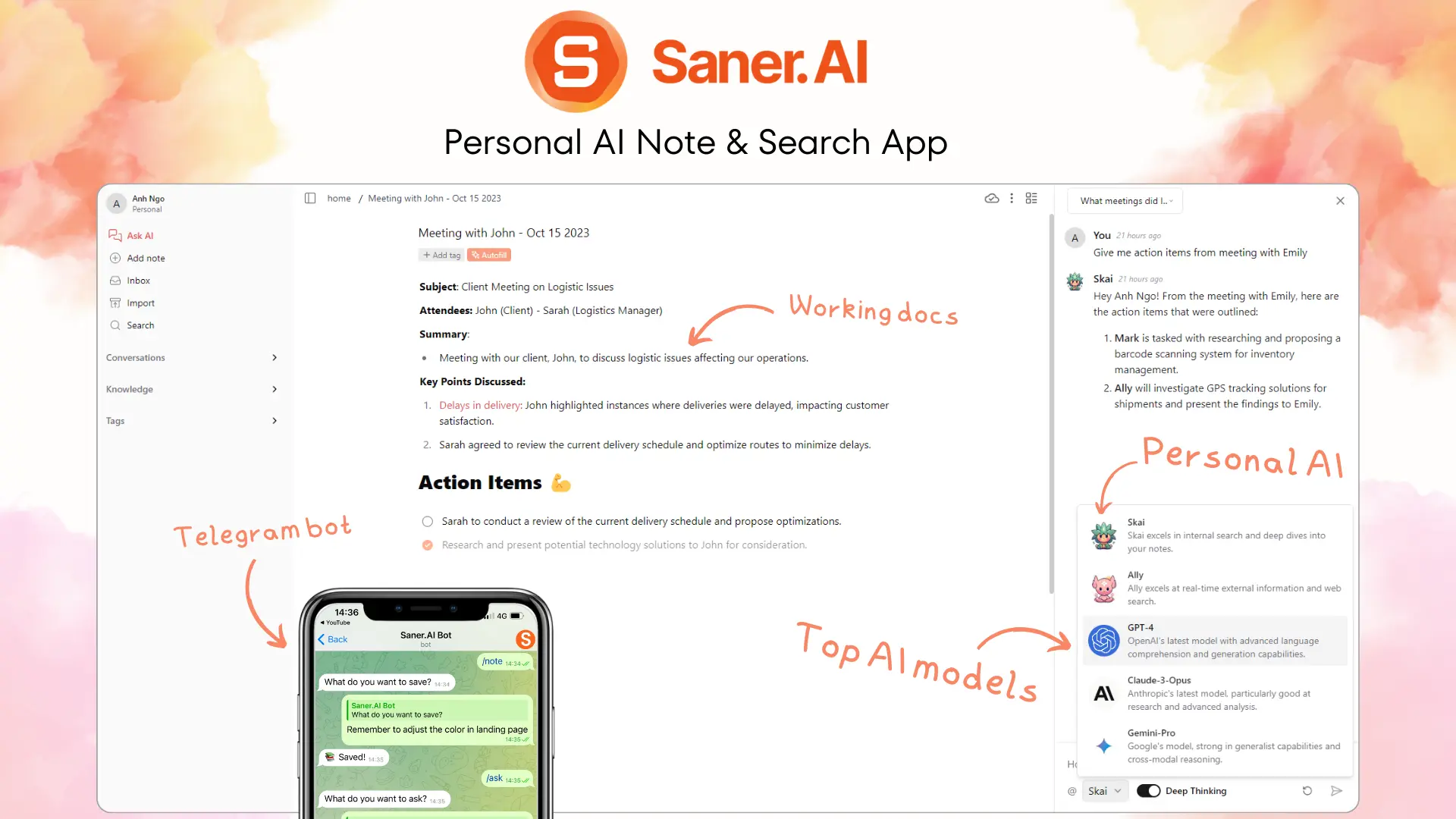
Saner.AI helps you easily write, recall, and generate insights from your uploaded documents or synced Google Docs. With an intuitive interface, it helps you get the research done efficiently
Pros
- Quickly import data from note apps like Evernote, Notion, Apple Notes, Markdown, and Google Docs
- A personal AI that deeply understands your information so you can just ask in natural language to extract insights, citation
- Automatically suggests tags for easy categorization
- Automatically suggest relevant papers, and notes to what you are writing
- Combines note-taking, task management, and AI assistance in one platform
- Search the Internet right alongside your writing documents, in one screen
- Designed with ADHD users in mind, reducing overwhelm & distractions
Cons
- Requires internet access for full functionality
Pricing
- Free
- Starter: Monthly at $7.89/month, Annually at $5.89/month
- Standard: Monthly at $15.89/month, Annually at $10.89/month
Who is it suitable for?
Saner.AI is particularly well-suited for:
- Intensive knowledge workers who need to manage large amounts of information efficiently from multiple sources, such as researchers, entrepreneurs, managers, and content creators
- Individuals with ADHD or those who struggle with information organization and time management
- Anyone looking to streamline their workflow without spending too much time learning a new tool.
How to start using it?
- Visit the Saner.AI website and sign up for an account
- Explore the app’s features, starting with basic note-taking and task creation.
- Try out the integrated internet search functionality to streamline your workflow.
How AI Fits into Your Research Workflow
Integrating these AI tools doesn’t mean replacing your own hard work. Rather, it’s about amplifying what you can already do. The tools mentioned above can help at various stages of research—from idea generation to writing and publishing.
Consider them as part of your team. Just like a lab partner, they handle the tedious, repetitive work, so you can stay focused on discovery and innovation.
Ethical Considerations and Challenges
Of course, using AI tools comes with its own set of challenges. How do we ensure the AI doesn’t misinterpret data? How do we avoid over-reliance on these tools? These are important questions that require careful thought, and ongoing ethical discussions will help shape the responsible use of AI in research.
Additionally, AI is not perfect. It’s important to remain critical of the information and recommendations AI tools provide. While they can make the research process faster, they cannot—and should not—replace your own judgment and expertise.
The Future of AI tool in Research
The future of AI in research is exciting.
As these tools continue to develop, they will not only improve in accuracy and efficiency but also in how they support researchers in uncovering new knowledge.
In time, they may even play a role in making research more accessible to those who have historically struggled to enter the field—whether due to a lack of resources or other barriers.
In the end, it’s about taking the next step in human potential, with AI as an ally.
